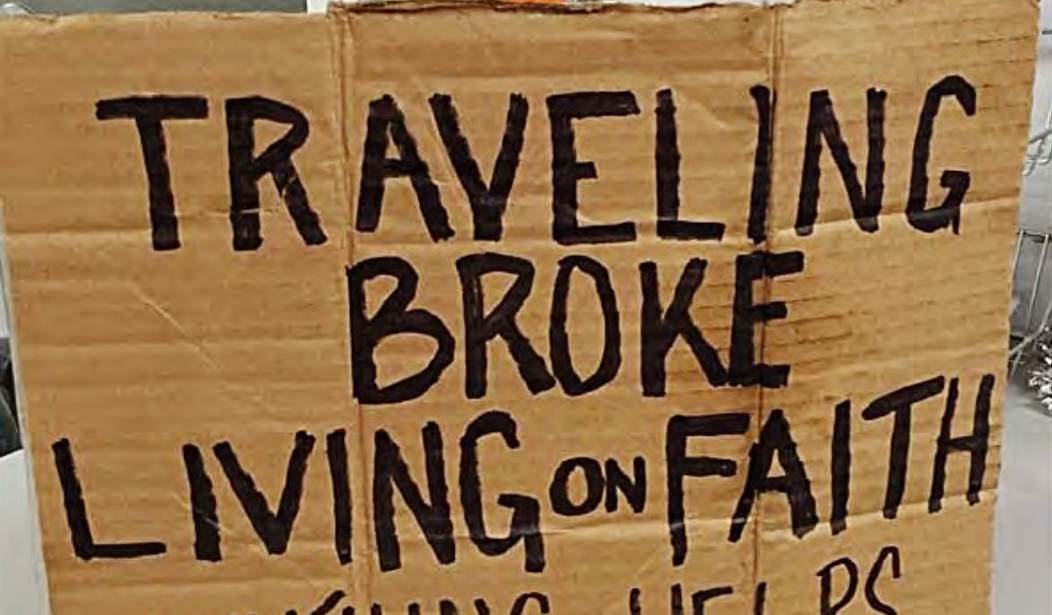When Susan and I married in 1976, I joked about a future career editing a small-town newspaper and aspiring to be a cracker-barrel philosopher. Through God’s mercy I can edit a magazine for a national town of several hundred thousand readers, some of whom are foolish enough to ask for advice, all too often on one of three topics: What college should my son or daughter attend? What movies should Christians watch? How, now that God has enriched me, can I help the poor?
People ask me that last question because I’ve written four books on aspects of effective compassion, so here go some cracker-barrel comments on that subject. Let’s start with the sin we all have: idol worship of some kind. Let’s consider Christ’s admonition to give up our idols, whether they be money, career, self-righteousness, promiscuity, or anything else. He doesn’t give specifics of what our post-idolatry life will be like, but typically says “follow me”—and as our focus of worship becomes Him, we’ll understand more about what to do.
Chapter 19 of Luke’s Gospel displays the process: Jesus informs Zaccheus that He will stay at the wee man’s house that day, but doesn’t tell the tax collector what to do with his wealth. Zaccheus joyfully makes his own decision: “the half of my goods I give to the poor.” Is that binding on everyone? No, but we should feel joy in giving. If we don’t, that signals something wrong with us or something wrong with the organization to which we are giving.
One way to be of maximum service, and to find out whether money we give really does help people (as opposed to supporting a bureaucracy), is to become a volunteer. A lawyer might volunteer at a place like Administer Justice, WORLD’s Hope Award for Effective Compassion national winner last year. A doctor or dentist might volunteer at charity clinics like the many WORLD featured in 2012. A writer might emulate Jacob Riis, who labored up boiling tenement stairways and forayed to freezing basements to let the affluent know “How the Other Half Lives,” a great book published in 1890.
Recommended
Another way is to use what God has given you for activities that will lead more people to follow Him. The right question is not “What would Jesus drive?” but how He would use it. In my old Austin neighborhood a baseball coach had a huge vehicle in which he would pick up for practice eight kids without dads: That’s when the fatherless got a small sense of what a Father in heaven might be like. Same thing goes for a house: The smallest ones can be castles of selfishness, the largest ones sites to create blessed ties that bind our hearts in Christian love.
I could tell many stories about people thinking through such matters, but one I’ve been taken with recently involves a Houstonian I profiled in our March 8 cover story, Julie Aldrich. She grew up with parents who were generous to the poor in both time and money. She and her husband now live in a mixed-income neighborhood: She chairs the board of a Christian charity that allows her to bring into a poor community resources from wealthy people she knows. Her husband, a lawyer and businessman, coaches poor kids. But they don’t claim to have sure answers and neither do I, except one: Seek to dine with Christ.
It may be good to give away half of your goods as Zaccheus did—but maybe not. If you’re well-off but not wealthy, and you don’t want to force someone else to support you, it may be good to save now, make sure your family is not in need, and at your death give to ministries much of what you’ve saved. The advice in chapter 30 of Proverbs is good—“Give me neither poverty nor riches; feed me with the food that is needful for me”—but neither I nor anyone else should foist on you a formula beyond the tithing that the Bible repeatedly mentions.
Having been an extremist myself when I was young, I do suggest following Proverbs in avoiding extremes. If you grew up poor, don’t become a Great Gatsby. If you grew up rich, don’t reject all that and go dumpster-diving. Rejoice in the Lord always.

























Join the conversation as a VIP Member